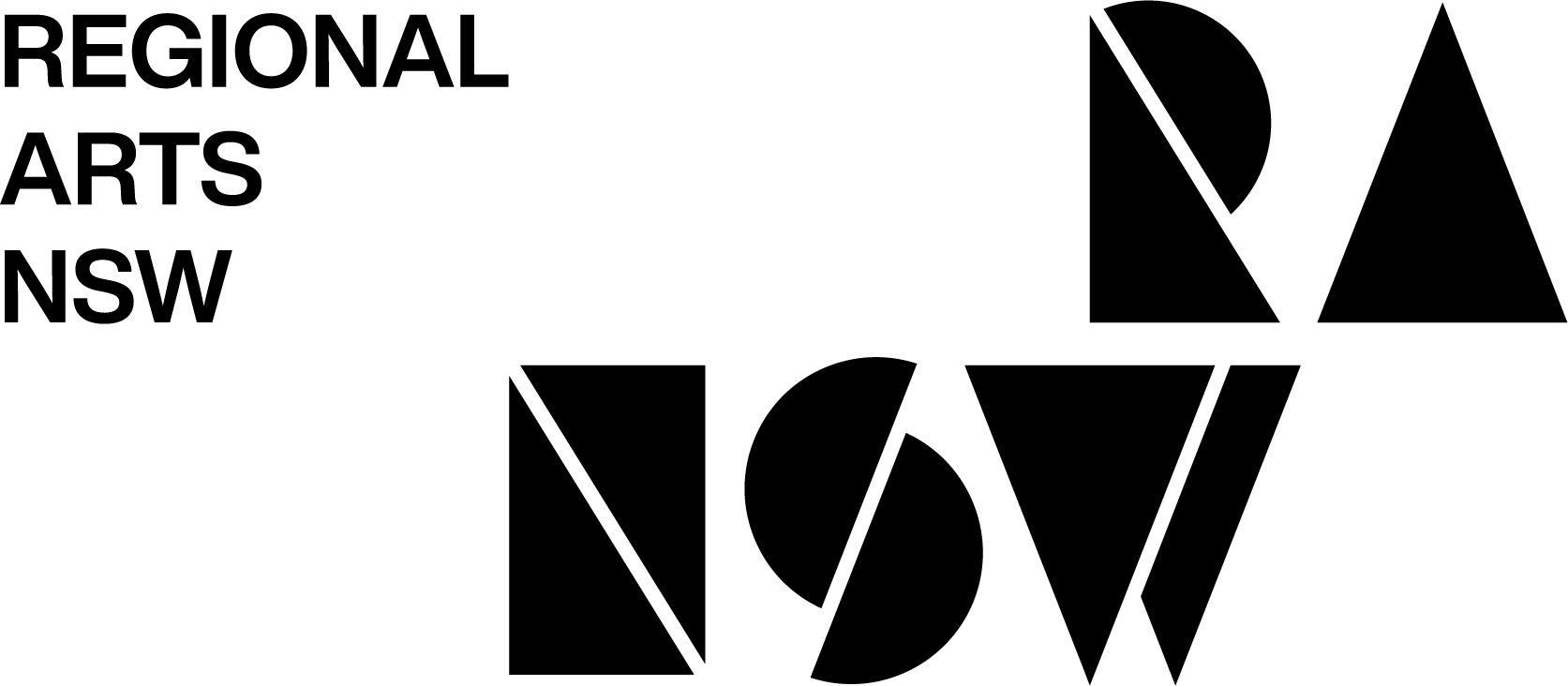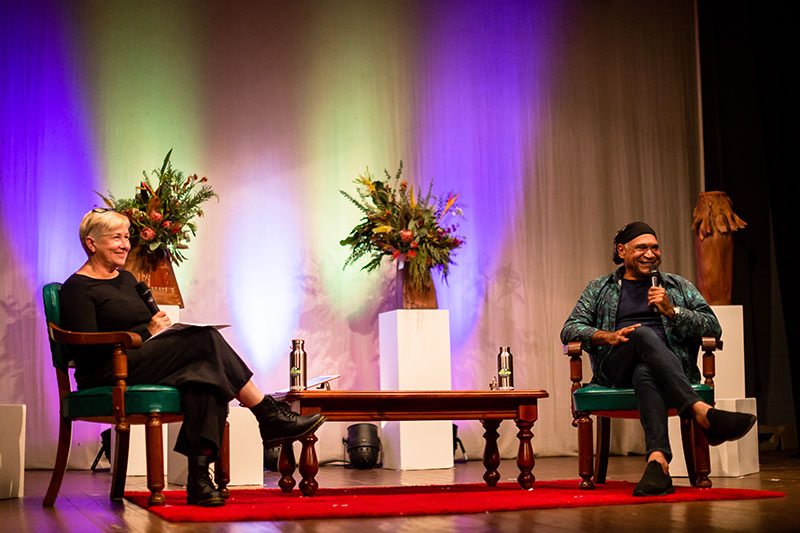When a festival committee decided to apply for a RAF grant to expand in 2022 their fledgling writers’ festival in the small town of Kyogle on Bundjalung country in the Northern Rivers area of New South Wales, the outcome was bigger than anyone expected. The town has a population of less than 3,000 people, and yet their second Kyogle Writers Festival in May 2022 sold over one thousand tickets, put on 73 separate events and hosted 60 writers, all with the backdrop of ongoing Covid and in the aftermath of the devastation of floods in the region.
There line-up of writers presenting at the festival certainly packed a punch as well and included prominent authors such as Melissa Lucashenko, Mirandi Riwoe (who was also Festival Ambassador), Julieanne Schulz, Ellen van Neerven, Patti Miller, Jackie Huggins and Delia Falconer. Festival organisers took pride in the fact that 77% of their line-up was made up of women and that First Nations writers were a strong focus of the festival, including their writer-in-residence, emerging author Nadia Johansen.
The 2022 event was the second iteration of the Kyogle Writers Festival and the attendance doubled. The programming was varied and included author talks, workshops, poetry readings, performances, panel discussions and lively conversations. Many of the events were free and they were able to work with 300 school students through a workshop program in schools. A number of venues across Kyogle were used and the festival also reached out to surrounding villages. The festival saw people visiting the town for the event but also engaged directly with the local community. This included participating in an art competition and a photography exhibition. The festival’s poetry competition raised and donated funds to the Literacy Foundation.
Of course there were challenges in achieving this growth. The small committee of six people had their hands full with the expansion of the festival, and this was further exacerbated when Covid took out a number of the volunteer team at festival time. The Committee also had to step in to man the planned pop-up bookshop after The Book Warehouse in Lismore were impacted by the floods that devastated the area in the months before the festival. Circumstances that were beyond their control had the committee, production team and volunteers needing to adapt.
The impacts of this festival on a small community are significant. Economically it has been estimated as bringing in over $86,000 to the town. But the impacts and successes are also in the interaction with the community, the work done to make it accessible to different parts of the community, the way it has enabled greater connection to the local First Nations Community, the strengthening of links to the local RADO Arts Northern Rivers and the opportunity for collaboration between local people and established writers. They also raised money for charity, donating funds to the Literacy Foundation as well as putting on an extra event, a charity film screening, to assist flood victims.
Events like this can also change the way small country towns see themselves. They know that they are capable of staging major events, of interacting with prominent people and attracting crowds. It enables the perception of the location as a place of culture, of community, of a can-do attitude, caring through charity and of connecting.

